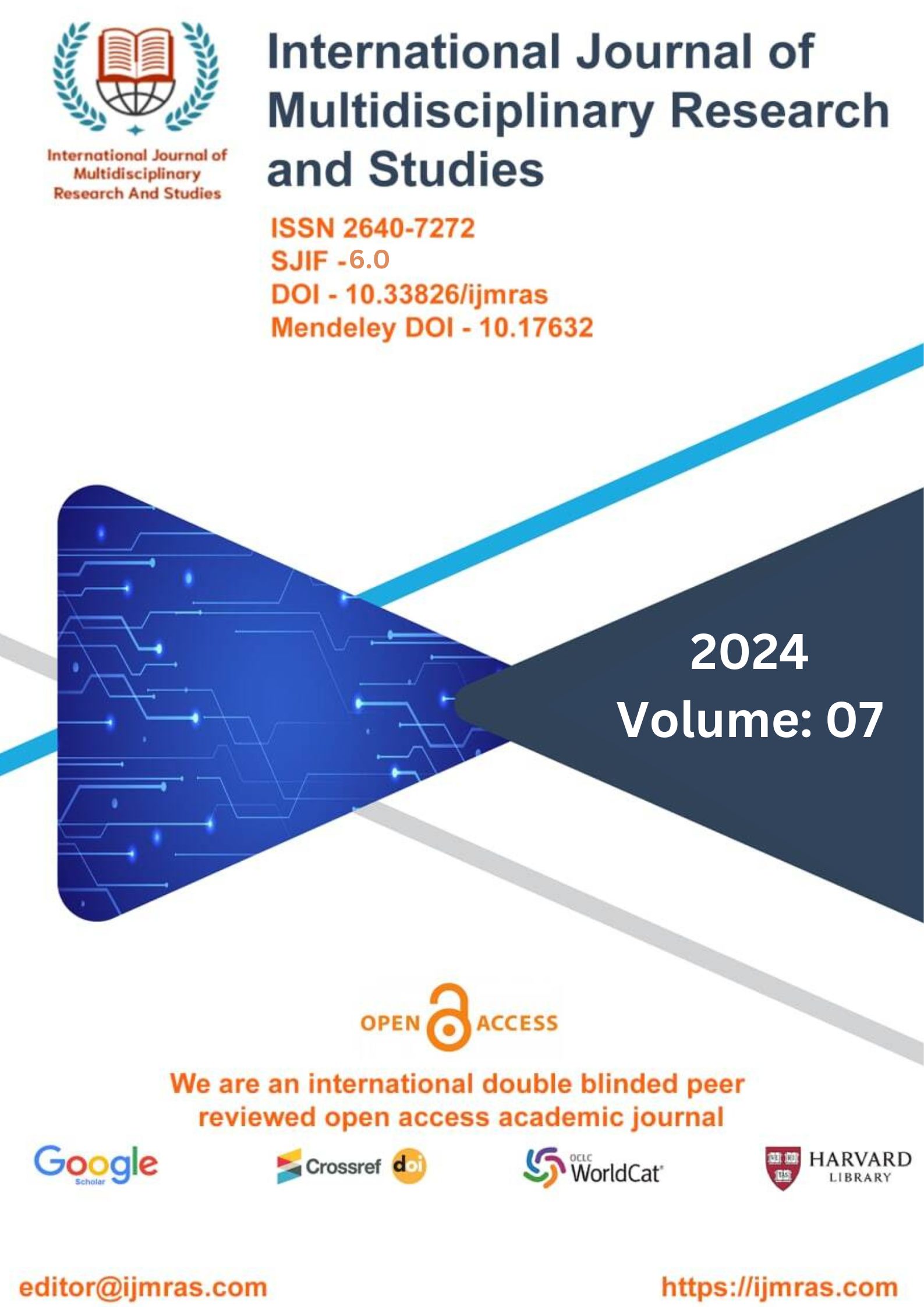An Examination of the Attitudes of Modern Chinese Teachers Toward Their Work and Professional Development

Abstract
In-service teachers in Guangzhou public schools will be surveyed about their opinions on professional development opportunities. Before recently, the Chinese government had stringent controls over any and all training programs meant to advance an employee's career. Only in recent years has China started decentralizing education to its provinces and cities, but this shift has had a significant impact (Chinese Embassy of Nepal, 2012; Xiaojiong, 2012; MOE, 2000).
This research is a valuable tool for architects, engineers, and other professionals involved in planning and designing new developments. It will also be helpful in gauging how faculty members feel about pursuing advanced degrees.
Keywords
Professional Development Opportunities, Teacher Training ProgrammesHow to Cite
References
Ashmore, R. A. & Cao, Z. (1997). Teacher education in the People’s Republic of China. Bloomington, Phi Delta Kappa Education Foundation.
Bodycott, P., Walker, A., and Lee Chi Kin, J. (2001, Spring). More than heroes and villains: Pre- service teacher beliefs about principals. Educational Research, 43(1), 15-31.
Boshier, R. & Huang, Y. (2006, Jul-Aug). Building for the future by expatiating the past: High drama from the summit of China's Learning Mountain. International Journal of Lifelong Education, 25(4), 351-367.
Brunswick Group. (2013, November). China & the third plenum: A review of the third plenary communiqué. China & The Third Plenum. Retrieved from http://www.brunswickgroup.com/media/229230/Brunswick-China-Analysis-CPC-Third- Plenary-Session-November-2013.pdf
Cheung, R. (2012, September). Teaching for creativity: Examining the beliefs of early childhood teachers and their influence on teaching practices. Australasian Journal of Early Childhood, 37(3), 43-51.
Cheng, Y. & Manning, P. (2003). Revolution in education: China and Cuba in global context, 1957-76. Journal of World History, 14(3), 359-391.
Chi-kin, L. J. & Feng, S. (2007 August). Mentoring support and the professional development of beginning teachers: A Chinese perspective. Mentoring & Tutoring, 15(3), 243-262.
China Educational and Research Network. (2006, February 28). Teacher education reform and development for the 10th Five Year Plan. retrieved from http://www.edu.cn/news_1461/20060228/t20060228_164200.shtml
ChinaToday.com (2010). China Education. Retrieved from http://www.chinatoday.com/edu/a.htm
China to promote equality in education. (2013, November 13). Xinua English news. Retrieved from news.zinhuanet.com/english/china.htm
Dikotter, F. (2010, November). The Great Leap backward. History Today, 60(11), 3-4.
Ding, X. (2012). Policy metamorphosis in China: A case study of minban education in Shanghai. Lanham: Lexington Book.
Education Office of the Embassy of the People’s Republic of China in USA. (2009). Retrieved from http://www.sino-education.org/english/index.htm
Eighth National People’s Congress. (2010, March 1). Education Law of the People’s Republic of China (1995). Asia Catalyst. Retrieved from http://asiacatalyst.org/laws/2010/02/education-law-of-the-peoples-republic-of-china.html
Embassy of the People’s Republic of China in the United States of America. (2009).
Retrieved from http://www.china-embassy.org/eng/gyzg/xsjl/
Embassy of the People's Republic of China in Nepal. (2012). Retrieved from http://np.china- embassy.org/eng/
Fan-Tang, S.-Y., Hung-Cheng, M.-M., & Mui-So, W.-W. (2006, July). Supporting student teachers’ professional learning with standards referenced assessment. Asia-Pacific Journal of Teacher Education, 34(2), 223-244.
Fang, Y. & Hui, Y. (2012). The external path of professional development for old teachers under the new curriculum reform in China. Cross-Cultural Communication, 8(3), 17-20. DOI: 10.3968/j.ccc.1923670020120803.1152
Friedman, E. (2008, June/September). Raising sheep on wolf milk: The politics and dangers of misremembering the past in China. Totalitarian Movements and Political Religions, 9(2– 3), 389–409. DOI: 10.1080/14690760802095054
Garet, M.S., Porter, A.C., Desimone, L., Birman, B. F., & Yoon, K.S. (2001). What makes professional development effective? Results from a national sample of teachers.
American Education Research Journal, 38(4), 915-945.
Gu, Wei. (2008, Summer). New horizons and challenges in China’s public schools for parent involvement. Education, 128(4), 570-578.
Hatcher, L. (2003). Step-by-step basic statistics using SAS. North Carolina. SAS Institute Inc. Hoyt, M. W. (2006). John Dewey’s legacy to China and the problems in Chinese society.
Transnational Curriculum Inquiry, 3(1), retrieved from http://nitinat.library.ubc.ca/ojs/index.php/tci
Hansen, V. (2000). The Open Empire: A history of China to 1600. New York. W. W. Norton & Company, Inc.
Huang, F. (2004). Curriculum reform in contemporary China: Seven goals and six strategies.
Journal of Curriculum Studies, 36(1), 101-115.
Hua, W. (2009, November - December). Prospects of private education in China. Chinese Education and Society, 42(6), 40-66.
Ivanhoe, P. J. & Norden B. W. V. (2005). Readings in classical Chinese philosophy. Indianapolis IN, Hackett Publishing Company, Inc.
Knowledgerush. (2003). Dengism. Retrieved from http://www.knowledgerush.com/kr/encyclopedia/Dengism/
Kuhn, D. (2009). The age of Confucian rule: The Song transformation of China. Harvard University Press. Cambridge, Massachusetts.
Kuo, P. W. (1915). The Chinese system of public education. Teachers College, Columbia University: New York.
Jiang, W. (2005, Nov-Dec). Creating a quality higher education teacher base and measures for undertaking reforms. Chinese Education and Society, 38(6), 7-16.
Jun, H. and Zhuzhu, W. (2010). Capability building in educational technology for teachers in China. British Journal of Educational Technology, 41(4), 607–611. DOI:10.1111/j.1467-8535.2010.01089.x
License
Copyright (c) 2024 WANG FENGYUAN , DR. NIDHI AGARWAL

This work is licensed under a Creative Commons Attribution 4.0 International License.
Individual articles are published Open Access under the Creative Commons Licence: CC-BY 4.0.




